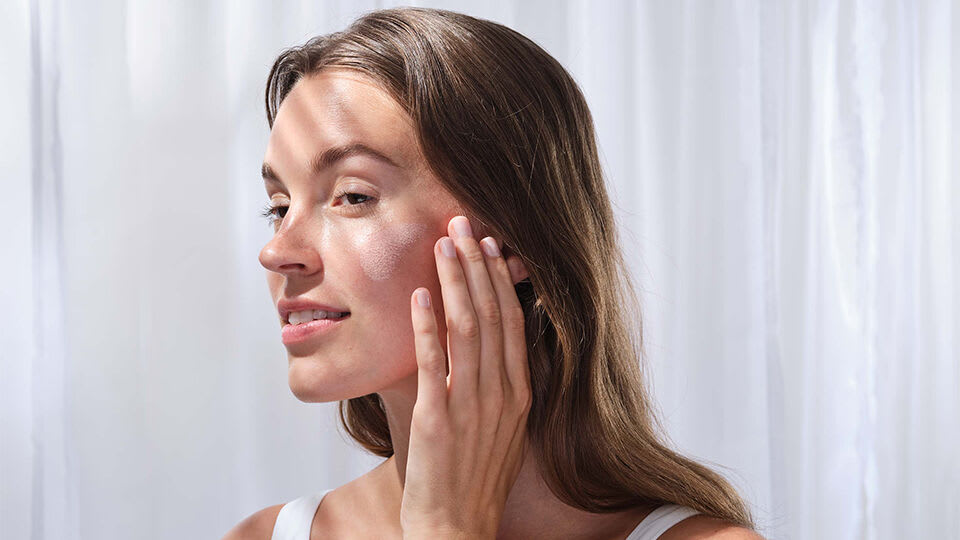It’s less of a recommendation, and more of a strong suggestion coming from every dermatologist in the world: You should wear sunscreen every day. Here is why.

No matter who you are, it’s the most important part of your skincare routine. So important, that in many countries, the category of beauty product it describes is regulated by government agencies. It can cost as little as $4 and as much as $400. It’s the topic of the article you’re reading: Sunscreen.
The question is not whether or not you should wear sunscreen, because you already know that you should. If not, please understand that you have to wear sunscreen. Since the dawn of humans, no one has ever been exempt from the effects of sun damage. The sun supports our life in many critical ways, but extended exposure can have ruinous effects on our body’s largest organ. People have used sun protection for centuries, and the topical product we use today was invented almost a century ago. Only recently have we become aware of sunscreen’s necessity—not as a beauty product, but as a critical part of one’s overall health. So it’s not enough to simply wear sunscreen; you have to wear it daily.
Why should you wear sunscreen every day?
There are many reasons, but the big five are:
- Ultraviolet rays are omnipresent, even on dark, rainy, cloudy days. A rainy day requires much less SPF than a day at the beach, but most rays penetrate clouds, and can even reach beneath water.
- Sun damage affects everyone. All skin types, across racial groups, experience genetic damage from sun exposure.
- You need less sun than you think you do. A little vitamin D is good for you; you still need to wear sunscreen.
- It’s your best defense against skin cancer. According to every dermatologist in the world, at least.
- SPF actually slows aging. It’s one of the few skincare practices that is proven, with significant evidence, to slow the aging process.
Sunscreen should be a regular habit, like applying deodorant or flossing one’s teeth. Hopefully, these tips will inspire you to find a sunscreen you love and stick to it.
Ultraviolet rays are omnipresent, even on dark, rainy, cloudy days.
It’s a bright, clear summer day, and you’re going to the beach with your friends. You pack your sunscreen, remembering to apply it every few hours, and you have a blast. The next day is gray and there’s no sign of the sun, so you decide to skip the sunscreen—no sun, no harm, right?
Wrong. Ultraviolet rays are always there—even when you can’t see the sun.
The sun is, of course, still around on a cloudy day, but its presence (and its direct light) is hidden behind a blanket of clouds. Meanwhile, its ultraviolet rays pass through, which is why you can still get a sunburn on a cloudy day. Cloud cover can decrease a particular area’s UV index, but it can also increase it: According to some experts, the presence of clouds can cause rays to bounce between ground and sky and scatter. For this reason, other forms of sun protection, like hats, can actually be less effective during overcast weather than they are in direct sunlight. Topical sunscreen, by contrast, covers all bases by shielding you on the surface of your skin.
Sun damage affects everyone.
There’s a common myth that those who have pale skin are highly sensitive to skin damage, while those with dark skin are immune to it. It’s a compelling theory, but completely false. All skin types are susceptible to UV damage, and so all faces require sunscreen—daily.
It’s true that some people burn in the sun, while others tan. It’s not a matter of luck, but one of molecular dermatology: Some people’s skin produces more melanin than others when exposed to the sun. Melanin production is determined by genetics, and though ancestry plays a role, it isn’t a matter of race. In 2003, a dermatologist explained to The Guardian why pale British people tended to burn while pale Swedish people tended to tan. The answer: Swedes produce more melanin. Even in Japan, where the climates are various but most people are of Japanese ancestry, skin tone expresses itself in different ways throughout the archipelago.
One thing that unites everybody throughout the world is that ultraviolet rays harm our skin. Take it from the Journal of the American Academy of Dermatology, which published research in 2022 on sunscreen use by race/ethnicity: “All skin types experience some DNA damage from ultraviolet light radiation, contributing to photoaging and photocarcinogenesis.”
You need less sun than you think you do.
It’s true that, in addition to harming our skin, sun exposure helps our health. Ultraviolet rays stimulate the body’s natural production of vitamin D, a nutrient that benefits us in many places, from our bones to our brains. So how much exposure is good for us—and when does it become bad for us?
The question was posed to UCLA Health, prompting a dermatologist to reference studies on vitamin D absorption in different places in the world. The short answer is: It depends. The long answer has to do with a mix of variables, like climate, and season, and how much clothing you wear when you go out. In Valencia, Spain, it may take somebody as few as eight minutes of sun exposure to get all their necessary vitamin D. In Boston, it could take as many as 23, and much longer if you’re bundled up, as you probably would be during wintertime.
If you’re especially worried about it, a short morning walk should be enough to generate a day’s worth of D. (If you’re especially worried about your health at all, talk to your doctor.) But if you’re planning on being outside of the home for longer than 20 minutes, a sunscreen is critical to keep you protected during all daylight hours.
It’s your best defense against skin cancer.
Skin cancer is the most common form of cancer, with more people diagnosed every year than all other cancers combined. The vast majority of skin cancers are linked to sun exposure.
There are many methods people can use to lower their sun exposure, and their odds of developing skin cancer; protective clothing like driving gloves, or accessories like parasols. But topical sunscreens remain one of the most popular, and effective, methods of preventing sun damage. In this light, having a good sunscreen isn’t just wise—it’s vital.
SPF actually slows aging.
In the not too distant past, sun exposure was considered a part of one’s beauty routine—sunning poolside was the behavior of the glamorous, and tanning parlors allowed people to preserve their tans year round. But contemporary research has revealed that the sun is not as good for our skin as we once thought—and in fact, it can be detrimental.
As we age, our skin gradually changes. It loses elasticity and structure, causing wrinkling and sagging. This happens because of the slow breakdown of molecules within the skin, which are caused by a variety of factors. An overwhelming body of research now indicates that sun exposure is one of the biggest factors in the aging process. The Yale School of Medicine recommends that patients who frequently sought the sun in their youth visit their dermatologist to assess their sun damage. UVA rays can penetrate down to the dermis, frying collagen in the process; UVB rays can go even deeper, causing genetic damage and heightening one’s cancer risk.
Sunscreen isn’t just good for aging skin—it’s good for all skin. And there are tons of sunscreens available on the market. The one you choose will probably depend on your personal preferences. Somebody looking for heavy-duty sun protection that feels weightless and hydrating might want an SPF 50 like Tatcha’s Silk Sunscreen. Those who like their sunscreen to do more than just protect them from the sun might prefer something like the Silken Sunscreen, which veils pores and smooths skin tone as it fortifies against UV rays. The best sunscreen is the one you use, so make sure to find one you like. Then, don’t go a day without it.



